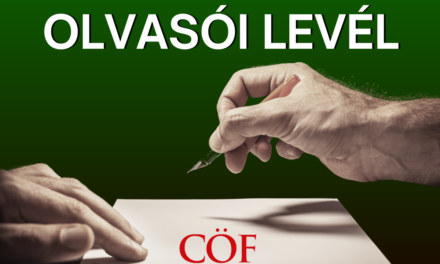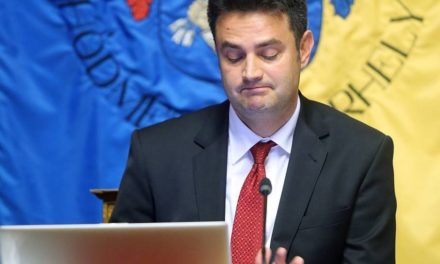The word of the people is the word of God, but today the People's Word is the enemy of the atheists and our Christianity. Can someone just explain to me what's so good about it?
Mihály Táncsics still meant what he said, that is, he believed that the opinion of the people, i.e. the majority of people who speak the same language and live within the same country borders, is important and authoritative. On the other hand, the staff of the body called Népszava, which strongly deplores the opinion of the majority (respect to the exception that may exist), are so far removed from reality and the voice of the people that, in comparison, Makó and Jerusalem are neighboring settlements.
I know that the saying is not related to the settlement named Makó, but to a soldier named Makó, who woke up from a delirious dream and thought he was already in Jerusalem, but even that makes the city of Makó really far from the holy city. Like the People's Word from the people's word.
Of course, one cannot expect better from the hateful publication, which is never alarmed by the defilement of Hungarians and Christianity, and which faithfully serves the ideals of Komcsi-Libsi, since it is owned by the company of Tamás Leisztinger, who can rightly be called the red baron, whose "work" is constantly tainted by suspicious business connections and accompanied by solutions. So he's a true communist, but he's also a billionaire. I think that's why the word of the people is also very important to him. Or not.
Well, after this, no one should expect Leisztinger's paper and its journalists to write a single good word about the ruling government, its supporters, or Christianity. Through their colleague named Friss, they are even now gloating about how non-religious Hungarians are (at least according to statistics) and it is therefore outrageous that they want to place a stone cross at the foot of the Statue of Liberty.
The idea doesn't upset me at all, but it's just one opinion out of many. Just as András Bencsik's is just one, because even though he is a well-known person, even though he is the editor-in-chief of a conservative organ, his opinion is just a private opinion and his vote during elections is just one of many, just like mine.
However, there is a difference between what I say and what András says. The opposing side will not carry my opinion around like a bloody sword in their press, trumpet it to the world in all their organs, that even this bloody-mouthed right-winger Bencsik is against the crucifixion. But while András does this for aesthetic reasons, the impression (which is created) is that he has a problem with the symbol of the cross.
András Bencsik believes, and I am now quoting from his Facebook post: "It would be roughly as if someone later carved a cross on the pedestal of the Aphrodite of Mélos, better known as the Venus of Milo, or as if a huge stone cross was installed on the front of the arena at the main entrance of the Puskás Arena, or as if they would carve one on the pedestal of the statue of Christ with outstretched arms in Rio. This is exactly how the cross does not fit on the pedestal of the Statue of Liberty."
And about why he doesn't think the cross fits there, he writes: "The Statue of Liberty on Gellért Hill is a rare and beautiful work. It became a symbol of Budapest. It competes with the world's most beautiful symbolic statues. Because it's perfect and shockingly clean. It only says as much as a tulip stretching towards the sun, but it says it with all its beauty. A slender, yet powerful female figure raises the palm branch of victory aloft."
There is some contradiction in his idea, because while the Venus of Milo or the Christ statue in Rio can be interpreted on their own, the work on Gellért Hill, on the other hand, should be viewed as a group of sculptures, that is, together, but we do not underestimate them. He may be right, he may not be. Based on the published visual plan - and according to my own taste - there is none, in fact I think that the projected cross only makes the view more sublime when viewed as a whole, which anyway is only visible if you stand directly in front of it and look at the group of statues. Elsewhere, only the figure of a woman holding up a palm branch, admired by András, is visible.
But the game is not about whether the stone cross improves or worsens the view. More about the fact that the attackers reject the plan as a religious symbol. And although the cross can indeed be identified with our religion (for those who have a religion), its message is all the more general, a reference to our 1,100-year-old statehood, the Christian roots of Europe, and even to what the above-mentioned penman named Friss can ignore: "...the Freedom -with a cross affixed to the statue, the government intends to continue the tradition of false legends about the history of Hungarians, once again pushing forward the false narrative of "we are the bulwark of Christianity."
Nocsak, nocsak, Comrade Friss, where did your communist self-consciousness discover the "lying legendarium"? After all, every legend is a bit of a lie (even if a sensible person uses this term for legends at all), but it is not history. The Miracle Deer is not reality itself, and no one has ever seen Prince Csaba riding a star trail. Legend. Or, if you prefer, a beautiful tale.
It would be nice if our friend Friss learned Hungarian before pursuing the craft of writing. For that, he would have to come to terms with the meaning of the words, which he seems to be able to do only to a very limited extent.
Of course, he knows well what the difference is, but he deliberately confuses things, because in his mind the government is lying, since it is also a false narrative - again in his opinion - that Hungary is the defender of Christianity. Which also indicates that Friss was really lazy when he should have studied history. Apparently, he has no idea what János Hunyadi was up to with the Muslims there at Nándorfehérvár. III. Callixtus and VI. Pope Alexander knew, his colleague Friss did not. True, he was never pope. But Friss somehow doesn't suspect why István Dobó in Eger harassed Turkish tourists who wanted to see the castle from the inside.
This wasn't done in defense of Christianity, it was just a hobby. And aren't we the bulwark of Christian (less and less so) Europe today, when the Muslim conquerors are pouring in again? Oh, no, because they are refugees. There are, of course, some minor misunderstandings, but those who are killing Christians today, cutting throats, butchering children are not Muslims, but mentally damaged people. There are just so many of them that they look like an army. The Hungarian border defense was therefore not raised to protect Europe and Christianity, but out of sheer evil.
This is where Friss's studious denial of reality leads. He would not (yet) dare to describe such a thing, but his logic and distortions of facts may suggest this.
You can be happy that Hungary is becoming less and less Christian, because only half of the citizens professed their religion, but if I'm not mistaken, that still means a lot of people. Of course, there could be more, if Népszava and its like-minded companions, the very advanced universities, colleges, the political heirs of the communist era and other scoundrels did not carry out systematic anti-religious work and if the atheism of socialism was not passed on to families who had become atheists...
Faith moves mountains - unbelief digs ditches and graves.
Front page image: The Statue of Liberty will be renewed - Source: Facebook/National Hauszmann Program













